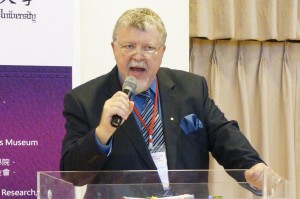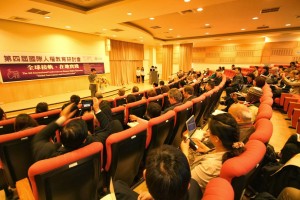My best congratulations to Tim Wilson on being appointed as Australia’s Human Rights Commissioner and to Attorney General Brandis on making this excellent choice. The appointment clearly adds much-needed balance to considerations by the Australian Human Rights Commission (AHRC).
Wilson is the first full-time Australian Human Rights Commissioner to be appointed since December 2005 when I vacated the office. During the six years of Labor government various new positions were created on the AHRC. The budget was significantly increased but the government did not manage to find time to appoint a new commissioner. This reflected Labor’s focus on its view of equity and on anti-discrimination issues and its relative neglect of civil liberties and freedoms. This lack of focus on civil liberties in Australia is further advanced by the fact that despite of numerous inquiries recommending adaption of legislative Bill of Rights for Australia, we are the only western democracy with no Bill of Rights to protect our fundamental freedoms.
During the Labor years the AHRC failure to protect our freedoms became especially evident. AHRC was either missing in action or advocating further curtailment of civil liberties in Australia. The AHRC decision to provide no amicus curie presence in the Bolt case is a good example of being missing in action. The advocating of additional limitations on our freedoms reached its peak when the AHRC decided to support Attorney-General Nicola Roxon’s plan to amend the Racial Discrimination Act to outlaw words that may offend, and by its failure to act when the Labor Government planned to create statutory media regulation in response to Finkelstein Inquiry. Further, the AHRC argued in its 2012 submission to the Senate Legal and Constitutional Committee about Human Rights and Anti-Discrimination Bill for the abolition of the Australian Human Rights Commissioner position.
The Commissioner’s position is vital to the protection of our freedoms and the development of a human rights culture. It is a statutory position that is independent – it does not report to the Attorney General or take Government direction but it reports directly to the Australian Parliament. The Commissioner’s mandate is guided by the International Covenant on Civil and Political rights. It has also an important public educational role that is too readily overlooked.
Civil liberties and freedoms, and in particular freedom of speech, play a very important role in modern society, adding to innovation, eliminating costly mistakes and giving modern societies their competitive edge. One characteristic of freedom of speech is that it sometimes may allow incorrect information to enter the public domain and this, of course, may hurt feelings of some. But there is no right not to be offended. Indeed, freedom to offend can go hand in glove with freedom of speech. Should astronomer Copernicus have refused to publish his heliocentric theory simply because he feared offending the Church and badly undermining the feelings of Catholics at the time? Progress might often depend on one person risking to offend by advancing an idea that proves to be right. Progress might often depend on one person risking to offend by advancing an idea that proves to be right.
The only exception to freedom of speech should be when it calls for action that could result in violence, for example against people of certain social classes or racial or religious backgrounds and when it threatens national security and public safety.
Coming back to the appointment of Tim Wilson, scores of left-leaning commentators have criticised the decision and pointed to Tim’s libertarian views and his employment at the Institute of Public Affairs. The prevailing wisdom amongst the critics is that to be appointed to the AHRC, or to work there, one must adhere to a left wing vision of the world and come from an “approved” Labor background. Most of current commissioners came from Labor or social welfare backgrounds. Too many of the supporters of those appointees fail to recognise that organisations like the Institute of Public Affairs, or people who share non-Labor outlooks, are a legitimate part of our civil society, entitled to participate fully in the political processes. The former Soviet Bloc countries provide good illustrations of the consequences of excluding large segments of society from these processes. To put it simply – we need all rights protected, even those of conservatives.
If we are to have a human rights commission, there must be a balance of views and outlooks on that Commission. Let’s hope that the appointment of Tim Wilson will be an important step to advance such a balance.


